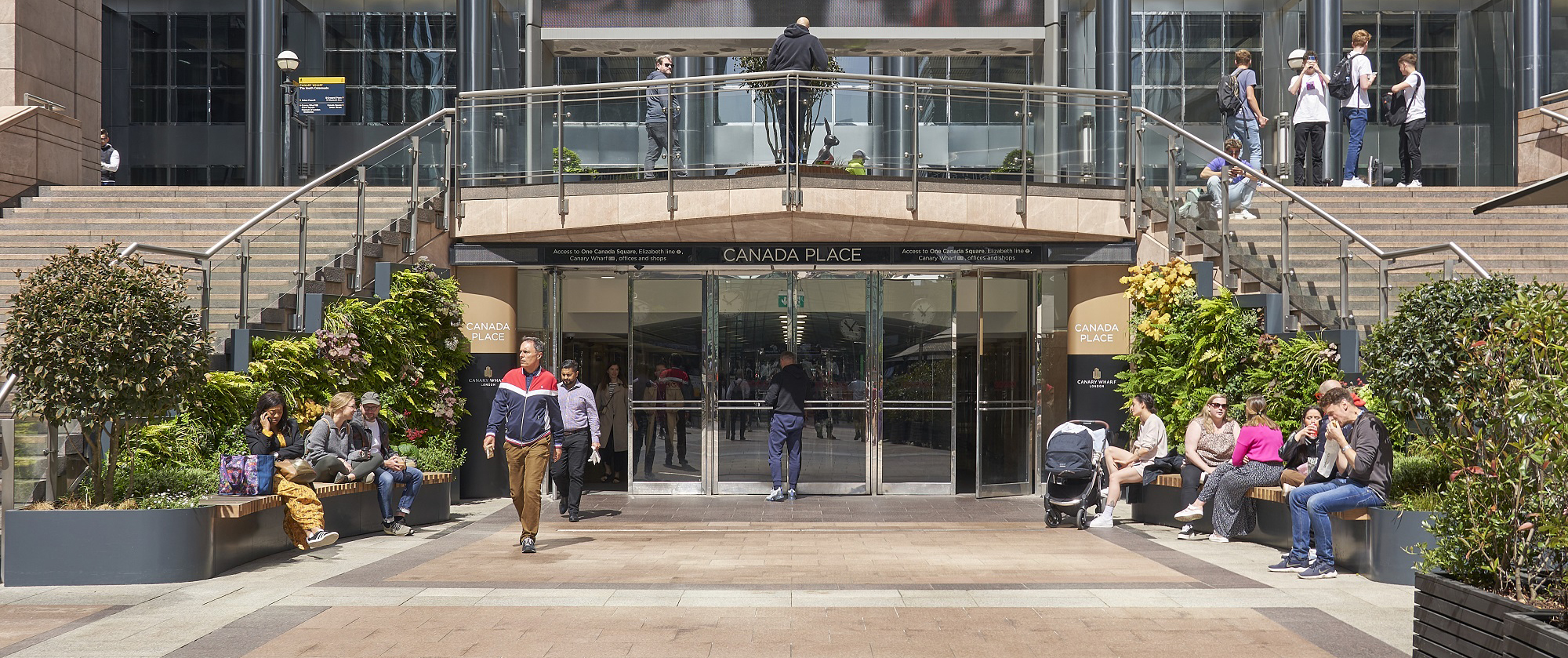Biotecture celebrates 15 year anniversary
Biotecture, a pioneering company in the living wall sector, is celebrating its 15th anniversary. The trailblazing business based near Chichester was established in 2007 by Richard Sabin and Mark Laurence with the aim of transforming urban environments and reconnecting people with nature.
Richard and Mark developed a revolutionary hydroponic living wall system, which helped change the perception of living walls from a novelty landscaping feature into a widely recognised cladding material.
Biotecture’s modular system remains the most flexible, resilient, and low-water-use of any fully comprehensive living wall system and it can be seen across London and the UK on projects such as 20 Fenchurch Street (The Walkie-Talkie) and Wimbledon’s No.1 Court.
Biotecture is passionate about spreading the urban greening message and recently developed a stackable, modular, freestanding living wall system that can be easily retrofitted without affecting building structure. The product draws on over a decade of living wall experience and was a finalist of the RHS Chelsea Sustainable Product of the Year 2021. The system has recently been used to transform areas across the Canary Wharf estate as part of a wider urban greening masterplan and the product is now available to consumers, retailers, and landscapers via Growing Revolution.
Biotecture are now working on integrating technology into living walls to help inform building users when maintenance is required and quantify the benefits they will receive.
Richard Sabin, Managing Director at Biotecture, said: “The first 15 years of our development have been focussed on greening up urban spaces and reconnecting people with nature. Living walls have so many benefits for people and the planet like reducing stress, improving air quality, and increasing biodiversity. Looking ahead over the next 15 years, we want to embed ‘technology into biology’ to quantify that data, and show people how the living walls are positively impacting their environment. We see this as another powerful way of demonstrating a return on investment from living walls.”
‘Active air flow’ is another innovative technology that will help Biotecture continue to lead the living wall sector. This involves drawing air through plant roots within the living wall to clean it, through a process known as phytoremediation, before feeding it back into the building spaces as clean, filtered air for the benefit of the occupiers.
Richard added: “Technology is an exciting area of development, but we have to remember that we all have genetic and emotional triggers when we are around living plants. Often that alone drives the decision to incorporate living walls and we are very comfortable with that because it delivers important health and wellbeing benefits. The future for us is about biology and technology as far as we are concerned.”
Social responsibility has always been an integral part of Biotecture’s approach during the last 15 years, and the company has recently signed up to 1% for the Planet, committing to donate 1% of its sales to environmental causes going forward.
With its pioneering approach and social responsibility, Biotecture has established itself as the leading provider of high-quality living walls, which are now routinely specified on some of the UK’s most iconic buildings.
A project that stands out to Richard and the team at Biotecture is the living wall they designed and installed at Wimbledon’s No.1 Court. Working directly with the All England Lawn Tennis Club, Biotecture developed the living wall that sits at either side the of the external big screen. It is now regularly seen by countless spectators around the world.
The 15th anniversary marks a milestone for Biotecture, which has remained as pioneering and visionary as when it was first established in 2007. It continues to frame discussions around biodiversity and sustainability of our built environment.
A strong culture of customer service exists throughout the entire organisation. The business has dedicated itself to 15 years of product innovation, engineering and business process improvements and efficiencies to provide customers with the highest quality solutions and services.
“Since our inception in 2007, Biotecture has remained a pioneering provider of living walls,” concluded Richard. “We have so many exciting new developments underway and a very strong project pipeline. By staying true to our original vision, Biotecture, today, has successfully redefined our urban environments – we are proud to have played a part in reconnecting people to nature.”
[edit] Related articles on Designing Buildings
Featured articles and news
Infrastructure that connect the physical and digital domains.
Harnessing robotics and AI in challenging environments
The key to nuclear decommissioning and fusion engineering.
BSRIA announces Lisa Ashworth as new CEO
Tasked with furthering BSRIA’s impressive growth ambitions.
Public buildings get half a million energy efficiency boost
£557 million to switch to cleaner heating and save on energy.
CIOB launches pre-election manifesto
Outlining potential future policies for the next government.
Grenfell Tower Inquiry announcement
Phase 2 hearings come to a close and the final report due in September.
Progress from Parts L, F and O: A whitepaper, one year on.
A replicated study to understand the opinion of practitioners.
ECA announces new president 2024
Electrical engineer and business leader Stuart Smith.
A distinct type of countryside that should be celebrated.
Should Part O be extended to existing buildings?
EAC brands heatwave adaptation a missed opportunity.
Definition of Statutory in workplace and facilities management
Established by IWFM, BESA, CIBSE and BSRIA.
Tackling the transition from traditional heating systems
59% lack the necessary information and confidence to switch.
The general election and the construction industry
As PM, Rishi Sunak announces July 4 date for an election.
Eco apprenticeships continue help grow green workforce
A year after being recognised at the King's coronation.
Permitted development rights for agricultural buildings
The changes coming into effect as of May 21, 2024.






















